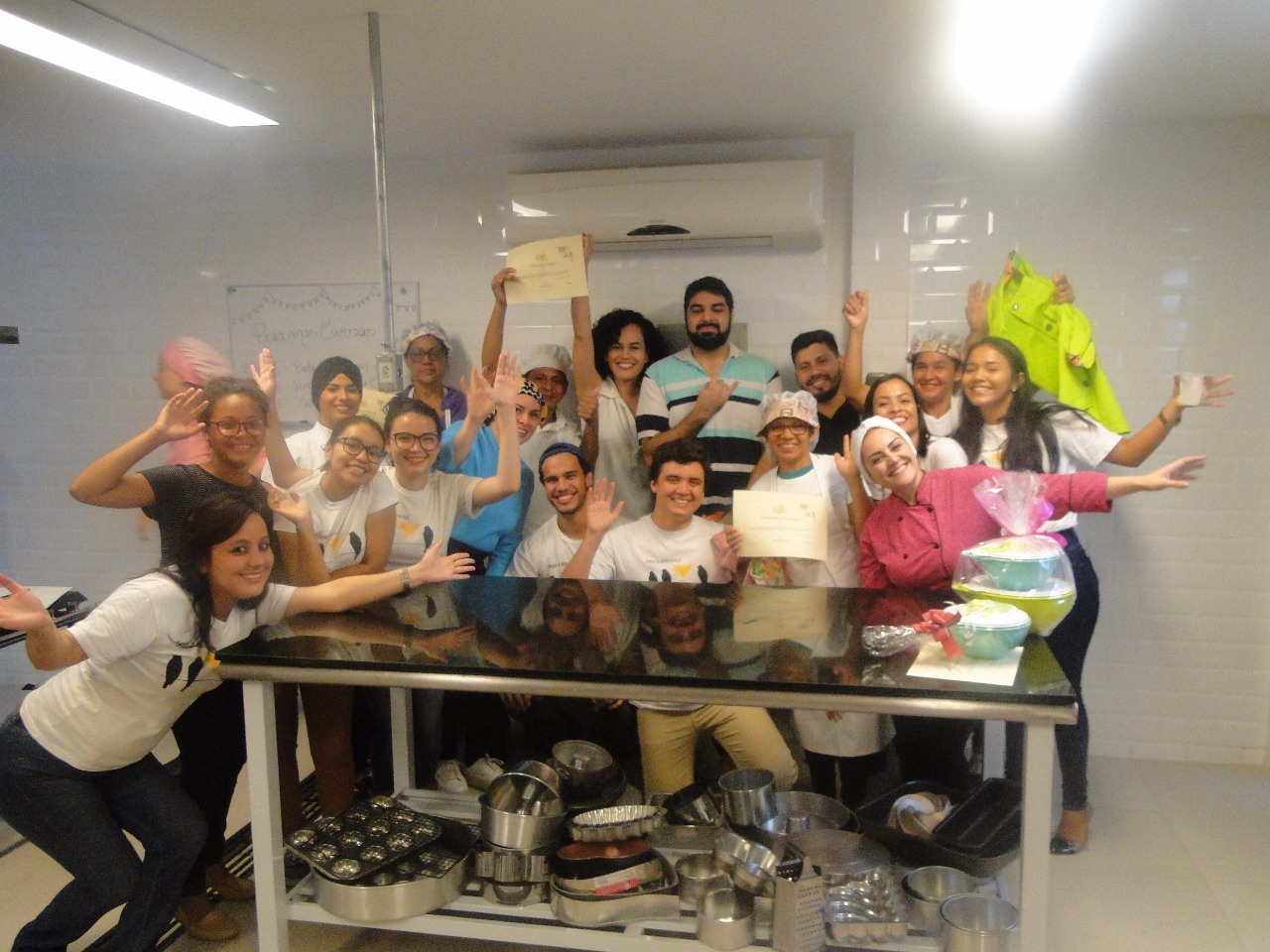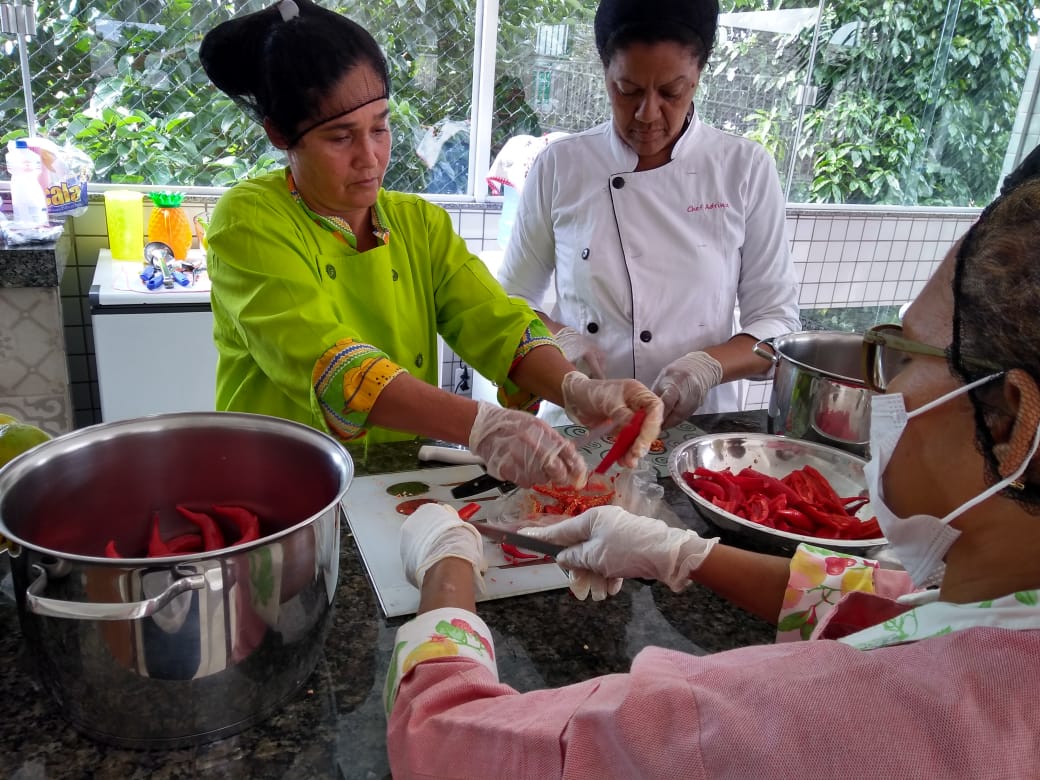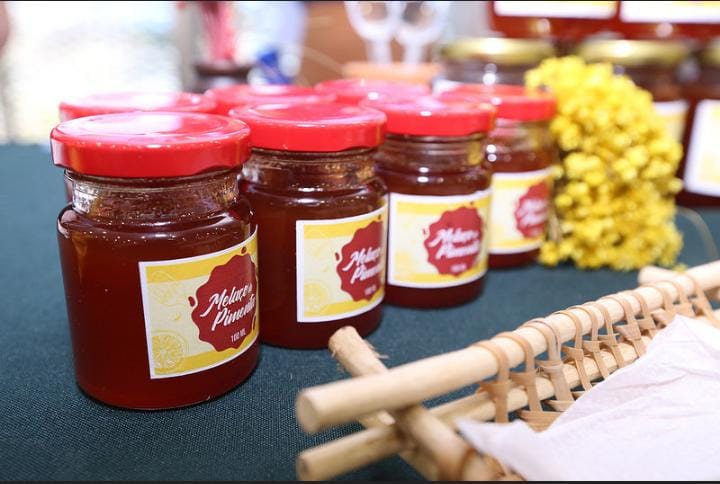Fiero Project was created in 15th September 2016 and it is aligned to ODS number 2, 8 and 12. The stipulated term to the end of the project is 4 years which it can proceed more independent.
Description
The Fiero (from the esperanto “pride”) is a social business created in 15th September 2016 by team Enactus of Universidade Federal do Pará, and it aims to reduce food waste from open markets of Belém, capital of the state Pará, through development and sale of products made from greenery, fruits and vegetables discarded for aesthetics criteria, but yet ideal for consumption. Besides its environmental bias, the venture has a social impact, providing capacitation and income to socioeconomic vulnerable communities. The scheduled date to the finalization of the project is 5th September 2020.
In Brazil, according to International World Resources Institute (WRI), around 41 thousand tons of food are wasted annually, resulting with the 10th place of the country in the 2018 rank of the nations that most waste food. In the state of Pará, a few habits are as common as going to the open market. In the capital Belém, the number of open markets reach 35. Attached to this, there are kilos of food wasted every day in theses markets. In addition, the majority of markets in the metropolitan region of Belém do not have proper structure to allocate the marketer and their business, as well as the costumers that visit the place, pointing the neglect and abandonment of the public power about this question. According to the newspaper Jornal Diário do Pará, who visits or work in these spaces say that the situation of abandonment is getting worse and the places that people get their monthly income are neglect, poor sanitation and unstructured. Many citizens, marketers as well as costumers, are impacted with the current market problematic, and the Fiero, meaning “Pride”, really have the will to rescue the pride of the marketers through entrepreneurial actions, bringing knowledge in the business area, offering gastronomical and hygiene capacitation, allowing profit and income – by selling the project products like the Pepper Jam with Orange, made by the marketers themselves. It is important to emphasize that Fiero aims to contribute directly and actively to the 2030 Agenda of the United Nations Organization, as can be seen, therefore aligning with the SDO (Sustainable Development Objectives) number 2 (Zero Hunger and Sustainable Agriculture), 8 (Decent Work and Economical Growth) and 12 (Responsible Consumption and Production), helping fortification and sustainable development of the changing of the world. Thus, the project has its product line that has been developed by team Fiero and its directly impacted communities, that initially had difficulty of acceptance and availability, but now are successfully inserted in the activities of the social business. In the last cicle, the waste of one of the markets of Belém was measured and 26 new products prototyping concluded. With emphasis on the Pepper Jam with Orange, which the acceptance index is of 96,1% and currently in selling stage. Beyond this, only in the five first month of commercialization, 121 units were sold resulting in R$ 1667,00 received. Moreover, with the intent of conscientization of the population about the food waste, the project perform actions in schools and public institutions spreading good practices about the sub-utilized food in recipes and meals.
The Market of São Brás, inaugurated in 1911, is a historical building of great importance and value for the city of Belém. The Market is made up of 5 sectors: fish and meat market, handicrafts, grocery store, market and restaurant. However, 100 years after its inauguration, the market has gradually suffered significant losses to its structure and importance, due to the insufficiency and even absence of public policies, as well as the absence of proper maintenance and the accumulation of solid waste in inappropriate places, leaving the community and consumers at the mercy of serious problems. Initially, the project aimed to attend all sectors of the market; however, it was noted that this was not viable, due to the lack of project members to meet a demand of this size, as well as the lack of participation of some of the merchants. However, the restaurant merchants have demonstrated greater initiative and willingness to work on improvements in their services and area where they work. The restaurant is composed mostly of women who have been working for more than 20 years in the market, have low income and little opportunity to improve their studies. Nonetheless, they are also proud to work in a place of great cultural importance for the town and their families, since most of them have parents and grandparents who all worked as market stallholders. Observing the great quantity of food still good for consumption being wasted daily at the market, and the yearning of the merchants for training and education, Fiero, in partnership with renowned regional chefs, students and professors of Nutrition and Food Engineering of the Federal University of Pará , idealized and prototyped diverse products, among them mayonnaise, ketchup, pestos, molasses and jams. More than 26 products were prototyped, among which the molasses were the most acceptable, resulting in the first product of the project: Pepper-and-Orange Molasses, which was outlined as an opportunity for restaurant merchants to gain extra income and for fruit-and-vegetable merchants to reduce food waste.
Community dynamics were carried out, such as Design Thinking: Empathy to Innovate, Tree of Desires, and others, aiming to understand the anxieties and difficulties of the community and to propose solutions. Based on the information obtained, Fiero, in partnership with teachers, coaches and professionals in the area, provides training on sales, customer service, hygiene, adequate clothing, forms of food use, and financial management, as well as lectures on entrepreneurship and empowerment, aiming to increase self-esteem and improve the quality of the services offered by the community.
Fiero has shown itself to be a promising project, and contributes to SDGs 02, 08 and 12. The first prize it won was the Resilience Prize in Desafio Inove+ in 2017, with Comidas D'Brás. In 2018, it won the first place prize at Startup Weekend Belém, with É da Feira; was recognized by the Ministry of Environment, was a Cargill Foundation Alimentação em Foco 2018 prize finalist and a semifinalist at the 2019 version of Cargill's Alimentação em Foco prize.
The community of the project works in the restaurant section of the Mercado de São Brás (market), a historical building found near the center of the city of Belém, State of Pará, Brazil. The main difficulties found were limited clientele, lack of organization within market stands, low income, lack of financial control, poor time management and, most of all, a large amount of wasted fruits, vegetables and greens.
In this manner, Fiero offers training sessions, helping merchants improve their services and attend clients better, keep their stands clean and visually attractive, adopt good food handling practices and wear proper uniforms. Through the Creative Kitchen Challenge, idealized and executed by the project members, all the merchants that participate in the production process received an apron, dolman and hairnets, so that they could be properly uniformed within their kitchens.
To solve the low income problem, the project developed a new products that could be sold to raise the merchants' income. This process includes the idealization, validation, market analysis and regularization stages. Currently, the project has one product in the sale and legal regularization stage, one product in the market analysis stage and another in the idealization stage. Our products have already garnered promising results: local surveys show that one of them has a 96% client approval rate, attracting several different client segments, ranging from middle class families, tourists and people with dietary restrictions.
To solve personal problems and lack of confidence, Fiero works with the community, listening to them and mapping their needs. Through this collaborative approach, the participation of executive coachs, like Soraya Amaral (Academia de Empreendedorismo), and the Creative Kitchen Challenge, Fiero developed a strong and close relationship with the community.
With Project Fiero, the project beneficiaries brought plenty of new perspectives and knowledge to the São Brás Market, with good practices and efficient techniques, ranging from food handling to marketing and sales training, always encouraging the merchants to reach their full potential. Nowadays, according to their testimony, they all work in a more hygienic and more conscientious manner, always seeking to ventilate their work-space and to avoid wasting food. Parallel to this, in the last three months, Fiero avoided the waste of about 50 kilos of food. Currently, the first course of Jams and Molasses was started within the project, which seeks not only to impact the community we currently work with, but also to expand to other nearby communities, such as the Feira da 25 market, as well as reaching a significant number of people in social vulnerability. Thus, Fiero has sought to participate actively in building a better world by working to include these people in opportunities for intelligent entrepreneurship, focused on socio-environmental issues and the UN's Agenda 2030.
<https://prnt.sc/mrmca8>
TV Cultura follows the production of the Fiero Project with São Brás Market's community:
<https://www.facebook.com/watch/?v=2181543418816463>
SBT Pará follows recipes with food that would end up in the trash with the participation of Fiero Project and partners.
<https://www.youtube.com/watch?v=xd4rM0bs_D4&t=90s>
Actions against food waste selected by the Ministry of the Environment - Fiero Project:
<https://www.youtube.com/watch?v=QUJ-W4yfYeQ&t=30s>
Planning and research for the development of the Fiero Project:
<https://www.youtube.com/watch?v=fvhV4S6ies0>
SDGS & Targets
Deliverables & Timeline
Resources mobilized
Partnership Progress
| Name | Description |
|---|
Feedback
Action Network


Timeline
Entity
Region
- Latin America and the Caribbean
Geographical coverage
Photos



Website/More information
Countries

Contact Information
Karla Bessa, Fiero
